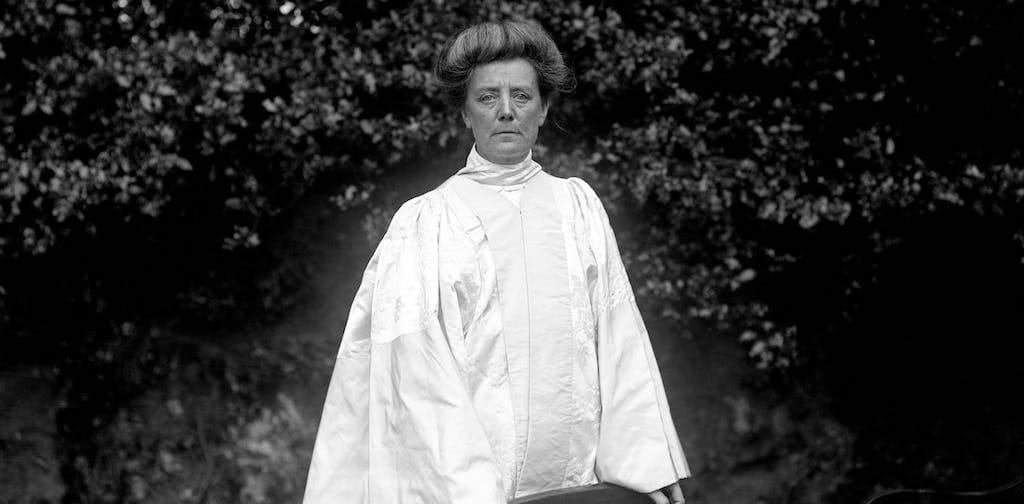Quartet review: did four women really change the world of classical music?

The subtitle of Quartet, historian Leah Broad’s book about four UK women composers, reads boldly: How Four Women Changed the Musical World.
But I am unsure that the musical world – for Broad, classical music – was changed in any meaningful way by composers Ethel Smyth (b.1858) Rebecca Clarke (b.1886), Dorothy Howell (b.1898) and Doreen Carwithen (b.1922), however fascinating their lives and careers, and however much their music deserves to be more widely heard.
Although Broad is a passionate advocate for these women’s music, convincingly arguing that it should be heard far more, she never really explains how her chosen women might have changed their or our musical worlds – or even what changing the musical world might mean. Given the book’s title, this is a fundamental flaw.
Broad paints vivid, at times over-imagined, pictures of all four women and the worlds in which they lived and worked. She deftly interweaves their stories in a chronological tapestry, although she opens the book in 1930 with Ethel Smyth, then in her seventies, conducting the Metropolitan Police Band in musical works including a piece by the then 32-year-old Dorothy Howell.
The other two women are not involved in this particular musical event, although Broad tells us that 43-year-old Rebecca Clarke was giving a concert with the English Ensemble a few miles away, and seven-year-old Doreen Carwithen was practising the piano. In fact, the four women’s paths rarely crossed – hardly surprising given their different generations, circles and career paths.
When the eldest of the women, Smyth, died in 1944, the youngest, Carwithen, was 21. It was Smyth who was the most radical of the four, loudly challenging assumptions about women’s musical capabilities and refusing to be the meek woman she was expected to be.
Carwithen was in many ways the most conventional, giving up her own composing career to promote and nurture composer William Alwyn, her demanding and often unpleasant married lover and later her husband.
None of these women are part of the musical canon, despite the valiant efforts of performers and scholars, in the way their British male contemporaries were. Elgar is heard rather than Smyth, and Delius rather than Clarke. Britten is given many more performances than either Howell or Carwithen.
Both Elgar and Britten were recognised by the British establishment with acclaim and honours that were rarely given to women, although Smyth was made a dame of the British empire in 1922. Throughout their lives, these four women were confronted with the belief that “serious” musical composition was simply beyond the capabilities of their sex.
Selective stories
These are certainly stories that need to be told; stories of women who created bodies of often remarkable, beautiful and powerful music. Broad creates compelling, readable narratives underpinned, as one would expect from an Oxford University musicologist, with considerable research.
However, this is not an academic book. There is no assumption of technical musical knowledge, and lives are carefully placed in wider political and social contexts. Broad perhaps tells us more about these women’s relationships than their music, from Smyth’s long procession of female lovers, through Clarke’s prolonged affair with a married man and Howell’s resolute singledom, to Carwithen’s bewildering devotion to Alwyn.
There are drawbacks to this approach. I find it hard to take that these women are referred to by their first names. So often creative women have been kept firmly in their place this way, not being granted the respect paid to their male contemporaries who are inevitably referred to by just their surnames.
More troubling are some of Broad’s assumptions and omissions, such as her sidelining of the generation of UK women composers who were slightly younger than Howell but older than Carwithen. This generation, many of whom were friends, includes Elisabeth Lutyens, Elizabeth Maconchy, Phyllis Tate, Priaulx Rainier and Grace Williams.
Some are given a brief mention – Maconchy, Lutyens and Williams are described as “a new, young group of modernist women composers”. But “modernist” seems to have negative connotations for Broad who contrasts Howell’s 1947 violin sonata with “the brutal modernist music being written by so many of her contemporaries”.
In focusing on Carwithen’s achievements as a film composer, Broad plays down Lutyens’s pioneering work in the film industry. She also claims, as do many others, that when Clarke and five other string players joined the Queen’s Hall Orchestra in 1913, they were “the first women in England to be employed in a professional orchestra”. In fact, women had been playing in professional orchestras for many years.
The Aeolian Ladies’ Orchestra, for example, was founded and conducted by double bass player Rosabel Watson in the early 1890s. This was not an amateur ensemble and often played canonical repertoire by composers such as Mendelssohn and Grieg, although it also played lighter music at seaside resorts.
Surprising absence
With no easy-to-follow footnotes, it is often hard to know how much of Quartet is Broad’s own research. And perhaps the most surprising absence in the book is the lack of overt acknowledgement that Broad gives to those who have gone before her in fighting for these, and other, women and their music.
The leading Smyth scholar, Elizabeth Wood, for example, is mentioned in Broad’s acknowledgements as one of a list of general writers “whose work has profoundly shaped this book”, but she fails to make clear that Wood’s life’s work was specifically thinking, researching and writing about Smyth.
I remain unconvinced that these four women changed the musical world. Programming and recording more of their music will certainly broaden and enrich the musical world. And this is what Broad seems to be suggesting.
She says that “the tides might be changing”, and that in recent years more of these women’s music is being heard. Certainly, if Quartet’s readers take their lives and music to their hearts as Broad so clearly has, then the way the musical world is both seen and heard may well change.
This article first appeared on The Conversation.





